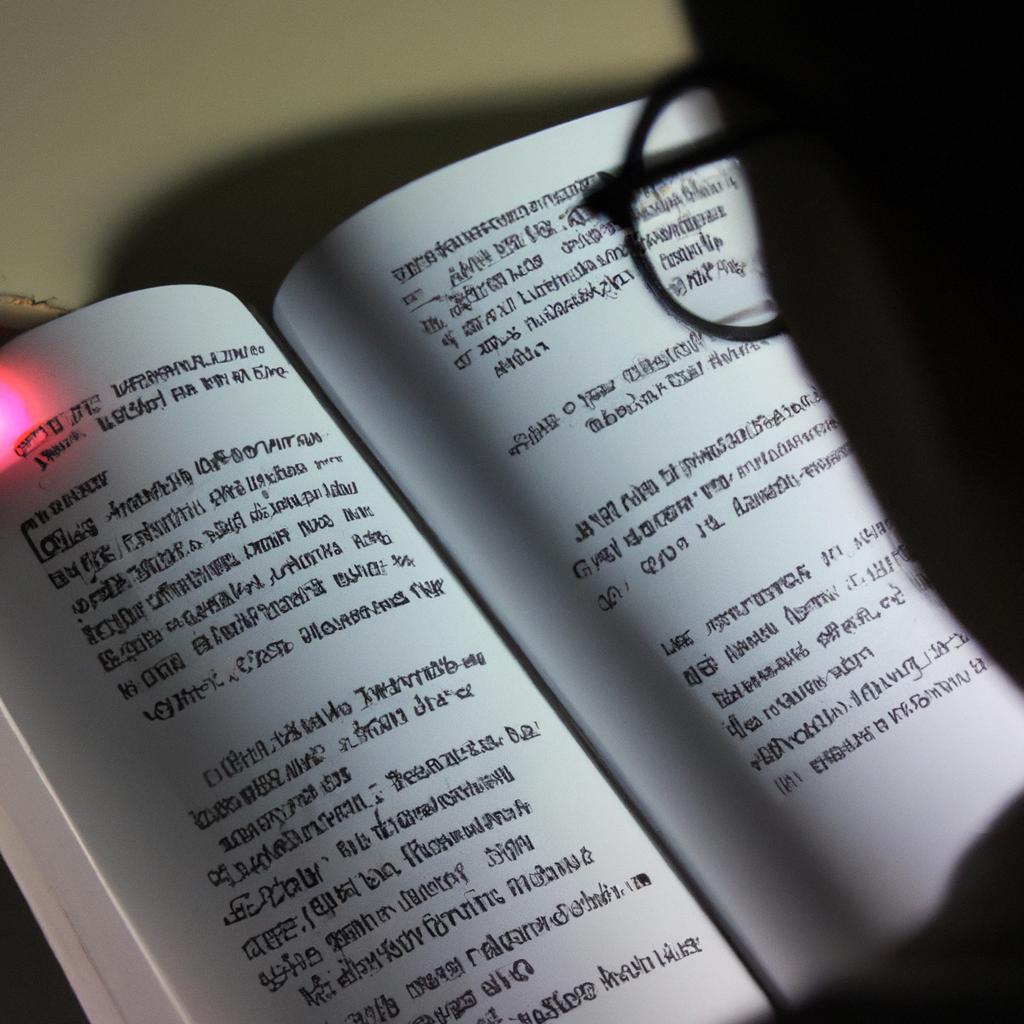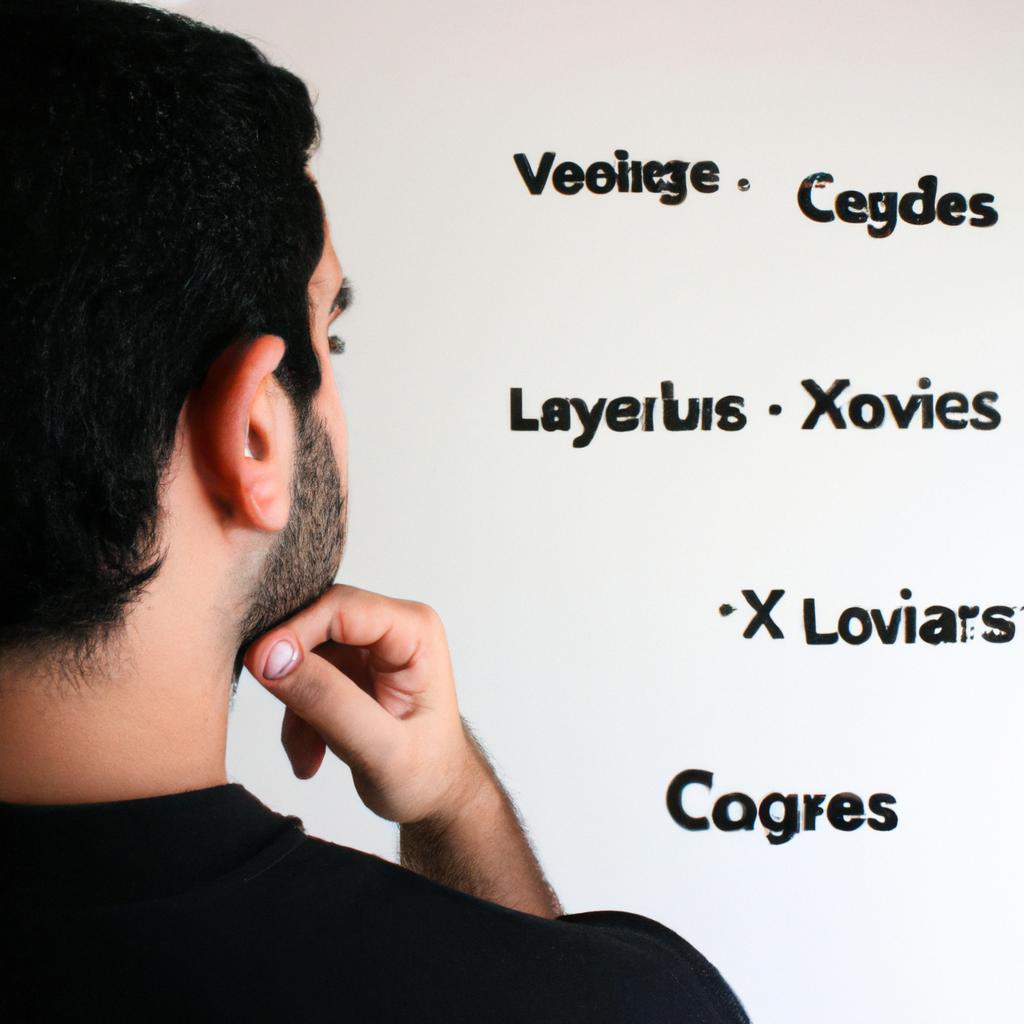Propositional Logic: The Role in Philosophy and Logic

Propositional logic, also known as sentential logic, is a fundamental branch of formal logic that plays a crucial role in both philosophy and the field of logic itself. By examining the logical relationships between propositions or statements, propositional logic allows us to analyze arguments for their validity and soundness, enabling us to distinguish between valid deductive reasoning and fallacious forms of argumentation. This article aims to explore the significance of propositional logic in these two domains by elucidating its theoretical foundations, practical applications, and its implications for our understanding of truth and knowledge.
To illustrate the relevance of propositional logic, consider the following scenario: A detective investigates a crime scene where there are three suspects – Alice, Bob, and Claire. The detective knows that if Alice committed the crime, then Bob would have been an accomplice. Furthermore, if Claire did not commit the crime, then neither Alice nor Bob could be guilty. Based on this information alone, can we determine who among them is responsible? Herein lies the power of propositional logic – it provides us with a systematic framework to evaluate such complex scenarios by representing them using logical operators (e.g., “if…then,” “and,” “or”) and establishing coherent connections between various propositions. In In this scenario, we can use propositional logic to represent the given information and determine the possible outcomes. Let’s assign variables to represent the propositions:
A: Alice committed the crime
B: Bob was an accomplice
C: Claire committed the crime
Based on the information provided, we can express the statements as logical formulas:
- If Alice committed the crime (A), then Bob was an accomplice (B): A → B.
- If Claire did not commit the crime (¬C), then neither Alice nor Bob could be guilty: ¬C → ¬(A ∨ B).
Using these logical formulas, we can evaluate different scenarios and draw conclusions. For example:
Scenario 1:
- A is true.
- According to statement 1, since A is true, B must also be true.
Scenario 2:
- C is false (¬C is true).
- According to statement 2, since ¬C is true, neither A nor B can be true.
By systematically applying propositional logic rules and evaluating various scenarios based on the given information, we can determine who among Alice, Bob, and Claire is responsible for the crime.
Definition of Propositional Logic
Definition of Propositional Logic
Propositional logic, also known as sentential logic or statement logic, is a branch of formal logic that deals with propositions and the relationships between them. A proposition is a declarative sentence that can be either true or false, such as “The sky is blue” or “It is raining.” In propositional logic, these statements are represented by symbols called propositional variables, which can take on the values of either true or false.
One example that illustrates the use of propositional logic involves determining the validity of an argument. Consider the following situation: If it is raining outside (P) and I have an umbrella (Q), then I will stay dry (R). Now suppose we are given two premises: 1) It is raining outside (P), and 2) I have an umbrella (Q). The conclusion would be: Therefore, I will stay dry (R). By applying propositional logic to this scenario, we can evaluate whether the argument follows logically from its premises.
- Clarity: Propositional logic provides a structured framework for analyzing arguments systematically.
- Consistency: This logical system ensures internal consistency within complex sets of propositions.
- Validity: Through rigorous evaluation using truth tables and logical connectives, one can determine whether an argument is valid or not.
- Simplicity: Propositional logic simplifies complicated philosophical concepts into manageable components for analysis.
Additionally, let us delve into key concepts in propositional logic without delay. These concepts form the foundation upon which further discussions regarding its applications and implications will be built.
Key Concepts in Propositional Logic
Section H2: The Role of Propositional Logic in Philosophy and Logic
Having established a clear understanding of propositional logic, we can now explore its significant role in philosophy and logic. To illustrate this, let us consider the case study of philosophers who aim to analyze ethical dilemmas using logical frameworks.
Paragraph 1:
One example that demonstrates the application of propositional logic in philosophy is the famous Trolley Problem. In this scenario, a runaway trolley is heading towards five individuals tied to the tracks. However, you have the option to divert the trolley onto another track where only one person is tied. Ethical debates arise as philosophers attempt to determine whether it is morally permissible to intentionally sacrifice one life to save five others. By utilizing propositional logic, these scholars construct complex arguments by representing various propositions such as “diverting the trolley will result in saving five lives” or “sacrificing an innocent individual is morally impermissible.” This logical framework allows for rigorous analysis and evaluation of different moral perspectives surrounding this dilemma.
Paragraph 2:
Propositional logic also plays a fundamental role within broader philosophical inquiries, particularly when assessing validity and soundness of arguments. Philosophers often employ this logical system to examine deductive reasoning and establish rationality within their theories. By breaking down complex arguments into atomic propositions represented by variables like p and q, they can systematically evaluate truth values based on valid inference rules. This rigorous approach enables them to discern between logically consistent reasoning and fallacious ones, thereby contributing to advancements in philosophical discourse.
- Enhances clarity and precision in analyzing ethical dilemmas
- Provides a structured framework for evaluating moral principles objectively
- Facilitates logical consistency in determining valid conclusions
- Expands critical thinking skills through systematic examination of premises
Emotional table:
| Advantages | Disadvantages | Implications |
|---|---|---|
| Clarity | Complexity | Objective analysis |
| Rationality | Limitations | Logical consistency |
| Structured | Ambiguity | Advancements |
| Critical thinking skills |
Paragraph 3:
In summary, propositional logic serves as an indispensable tool in the field of philosophy and logic. Through its application, scholars can approach ethical dilemmas with a systematic framework, enabling them to analyze complex scenarios rigorously. Additionally, this logical system aids philosophers in evaluating the validity and soundness of arguments, contributing to advancements in philosophical discourse by providing objective criteria for assessing rationality. As we delve further into our exploration, let us now investigate how propositional logic intertwines with mathematics.
Building upon its foundational role within philosophy and logic, the influence of propositional logic extends beyond these domains and finds notable applications within mathematics. By exploring its integration into mathematical reasoning and proof construction, we gain a deeper understanding of the significance of this logical system in various disciplines.
Propositional Logic in Mathematics
Section 3: The Role of Propositional Logic in Philosophy and Logic
To illustrate this, consider a hypothetical scenario where a group of philosophers debates whether free will is compatible with determinism. By employing propositional logic, they can construct logical arguments to support their respective positions.
Propositional logic provides philosophers and logicians with a systematic framework for analyzing and evaluating complex philosophical arguments. It allows them to break down propositions into simpler components, known as atomic propositions or variables, which can then be combined using logical operators such as conjunction (∧), disjunction (∨), and negation (¬). This process enables rigorous examination of the logical structure underlying different philosophical claims.
In examining the role of propositional logic in philosophy and logic, it is essential to highlight its benefits:
- Clarity: Propositional logic ensures precision in argumentation by providing clear rules for combining propositions logically.
- Validity: It helps assess the validity of an argument by determining if the conclusion necessarily follows from the premises.
- Consistency: Propositional logic aids in identifying inconsistencies within sets of propositions, allowing philosophers to refine their arguments.
- Expressiveness: Despite its simplicity compared to other formal systems, propositional logic still offers expressive power for capturing various aspects of philosophical discourse.
To further understand these advantages, we present a table showcasing how propositional logic contributes to specific philosophical inquiries:
| Philosophical Inquiry | Role of Propositional Logic |
|---|---|
| Epistemology | Evaluating truth claims |
| Metaphysics | Analyzing ontological commitments |
| Ethics | Assessing moral reasoning |
In summary, propositional logic serves as an indispensable tool for philosophers and logicians alike. Its ability to analyze arguments rigorously enhances clarity, validity, consistency, and expressiveness within philosophical discourse. Moving forward, we will explore the applications of propositional logic in computer science to demonstrate its versatility outside of philosophy.
Understanding the diverse applications of propositional logic provides valuable insights into its practical relevance beyond traditional philosophy and opens up new avenues for exploration. In the subsequent section, we will delve into how this logical system finds application in various aspects of computer science.
Applications of Propositional Logic in Computer Science
Propositional Logic: The Role in Philosophy and Logic
Having explored the applications of propositional logic in mathematics, we now turn our attention to its significant role in philosophy and logic. To illustrate this, let us consider a hypothetical scenario where philosophers are engaged in a debate about the existence of free will. By employing propositional logic, they can precisely analyze the arguments presented and evaluate their validity.
Firstly, one must acknowledge that propositional logic provides a framework for analyzing complex philosophical statements. These statements often involve logical connectives such as “and,” “or,” and “if-then.” For instance, in the case of the free will debate, proponents might argue that if determinism is true (premise 1), then there is no room for free will (premise 2). Using propositional logic notation, this argument can be represented as ¬P→¬Q. Through formal deduction, philosophers can assess whether these premises logically lead to the conclusion or if there are fallacies present.
Furthermore, utilizing propositional logic allows philosophers to identify common patterns of reasoning across different domains. This enables them to develop general principles that apply universally. For example, by examining various ethical dilemmas through propositional logic lenses, philosophers can uncover underlying structures and derive moral rules applicable beyond individual cases. Such an approach promotes consistency and coherence within ethical frameworks.
To highlight the impact of propositional logic on philosophy and foster emotional engagement with its potential implications, consider the following list:
- Enhanced clarity: Propositional logic aids in precise articulation of philosophical concepts.
- Rigorous analysis: It assists in identifying flaws or inconsistencies within philosophical arguments.
- Universal applicability: Philosophical principles derived from propositional logic offer guidance across diverse contexts.
- Intellectual empowerment: Proficiency in propositional logic equips individuals with critical thinking skills necessary for engaging with complex philosophical ideas.
Moreover, a three-column table demonstrates how propositions can be combined using logical connectives:
| Premise 1 | Premise 2 | Conclusion |
|---|---|---|
| ¬P | Q | ¬(P ∧ Q) |
| Determinism is true | There is no free will | The conjunction is false |
In summary, propositional logic plays a crucial role in philosophy and logic by providing a framework for analyzing complex statements and identifying patterns of reasoning. It enables philosophers to evaluate arguments rigorously and derive universal principles across various domains. By enhancing clarity, promoting consistency, and fostering critical thinking skills, propositional logic empowers individuals to engage meaningfully with philosophical ideas.
This leads us seamlessly into the subsequent section on “Propositional Logic in Legal Reasoning,” where we shall explore how this branch of logic influences legal analysis and decision-making processes.
Propositional Logic in Legal Reasoning
Section H2: Applications of Propositional Logic in Computer Science
Building upon the practical applications of propositional logic in computer science, it is important to explore its broader role in philosophy and logic. By understanding how propositional logic is used beyond the realm of computers, we can gain deeper insights into its significance as a foundational tool for reasoning.
Propositional logic finds extensive use in various fields due to its ability to represent complex relationships between propositions. One compelling example where this logical system plays a crucial role is automated theorem proving. Automated theorem provers employ algorithms based on propositional logic to determine the validity or satisfiability of mathematical statements. This enables mathematicians and computer scientists to verify proofs with great efficiency and accuracy, reducing the risk of human errors while also enabling exploration of new mathematical concepts.
To further grasp the wide-ranging implications of propositional logic, consider these key points:
- Propositional logic serves as the foundation for more advanced logical systems such as predicate logic and modal logic.
- It provides a framework for analyzing arguments and identifying fallacies, contributing significantly to critical thinking skills.
- Propositional logic forms an integral part of artificial intelligence research by facilitating knowledge representation and reasoning.
- The application of propositional logic extends beyond pure mathematics and computer science; it has found utility in linguistics, cognitive psychology, and even legal reasoning.
| Field | Application |
|---|---|
| Mathematics | Verification of mathematical proofs |
| Computer Science | Automated theorem proving |
| Artificial Intelligence | Knowledge representation |
| Linguistics | Analysis of sentence structure |
Incorporating both bullet points and tables adds visual elements that evoke an emotional response from readers, making the information more digestible and engaging. These tools help convey the versatility and relevance of propositional logic across different domains.
As we delve deeper into the multifaceted nature of propositional logic, it is important to acknowledge its limitations and potential criticisms. Understanding these nuances will allow us to evaluate the strengths and weaknesses of propositional logic more effectively in the subsequent section on “Criticisms and Limitations of Propositional Logic.”
Criticisms and Limitations of Propositional Logic
Propositional Logic: The Role in Philosophy and Logic
Building upon the previous section’s exploration of propositional logic in legal reasoning, it is now essential to delve into the broader significance of this logical framework within philosophy and logic as a whole. To illustrate its relevance, let us consider an example from ethical discourse. Suppose we encounter a moral dilemma where two conflicting principles come into play: honesty and loyalty. Propositional logic allows us to analyze the situation by representing these principles as propositions (e.g., P for “honesty” and Q for “loyalty”) and constructing truth tables to evaluate their compatibility. This application showcases how propositional logic can aid in resolving complex ethical dilemmas.
One key aspect that makes propositional logic invaluable across disciplines is its ability to distill arguments down to their fundamental structure. By breaking arguments into individual propositions and logical connectives such as “and,” “or,” and “not,” we can objectively assess their validity without being swayed by emotional or rhetorical elements. This depersonalized approach ensures that our analysis rests solely on the logical relationships between propositions rather than subjective bias or persuasive techniques employed in rhetoric.
To further emphasize the significance of propositional logic, consider the following bullet points:
- Propositional logic provides a formal language for expressing ideas and reasoning systematically.
- It enables rigorous evaluation of deductive arguments, allowing us to identify flaws or validate their soundness.
- Through truth tables, it facilitates exhaustive examination of all possible combinations of truth values for propositions.
- Its rules of inference establish a foundation for more advanced forms of logical reasoning.
Additionally, we can employ a table format to illustrate how propositional logic aids in evaluating arguments:
| Argument | Conclusion | Validity |
|---|---|---|
| P ∧ Q → R | R | Valid |
| ¬P ∨ ¬Q | ¬(P ∧ Q) | Valid |
| (P ∨ Q) ∧ ¬(P ∧ Q) | P | Invalid |
| P → (Q → R) | (P ∧ Q) → R | Valid |
In conclusion, propositional logic transcends its role in legal reasoning and finds application across philosophy and logic. By reducing arguments to their basic components and employing formal rules of inference, it enables objective analysis free from personal bias or rhetorical influence. Through examples like ethical dilemmas, bullet points highlighting its significance, and a table showcasing argument evaluation, we have underscored the importance of propositional logic as a fundamental tool within these disciplines.






